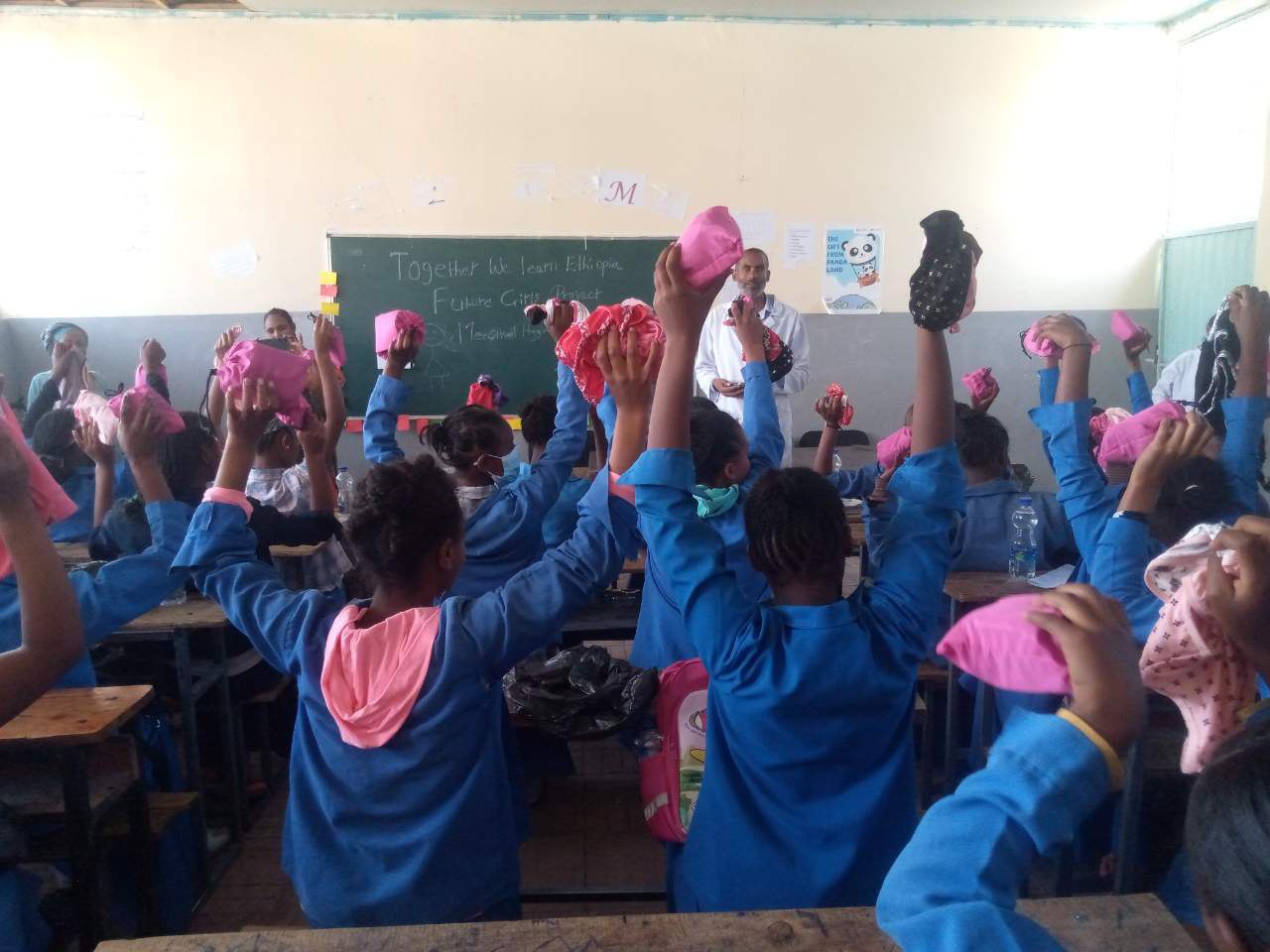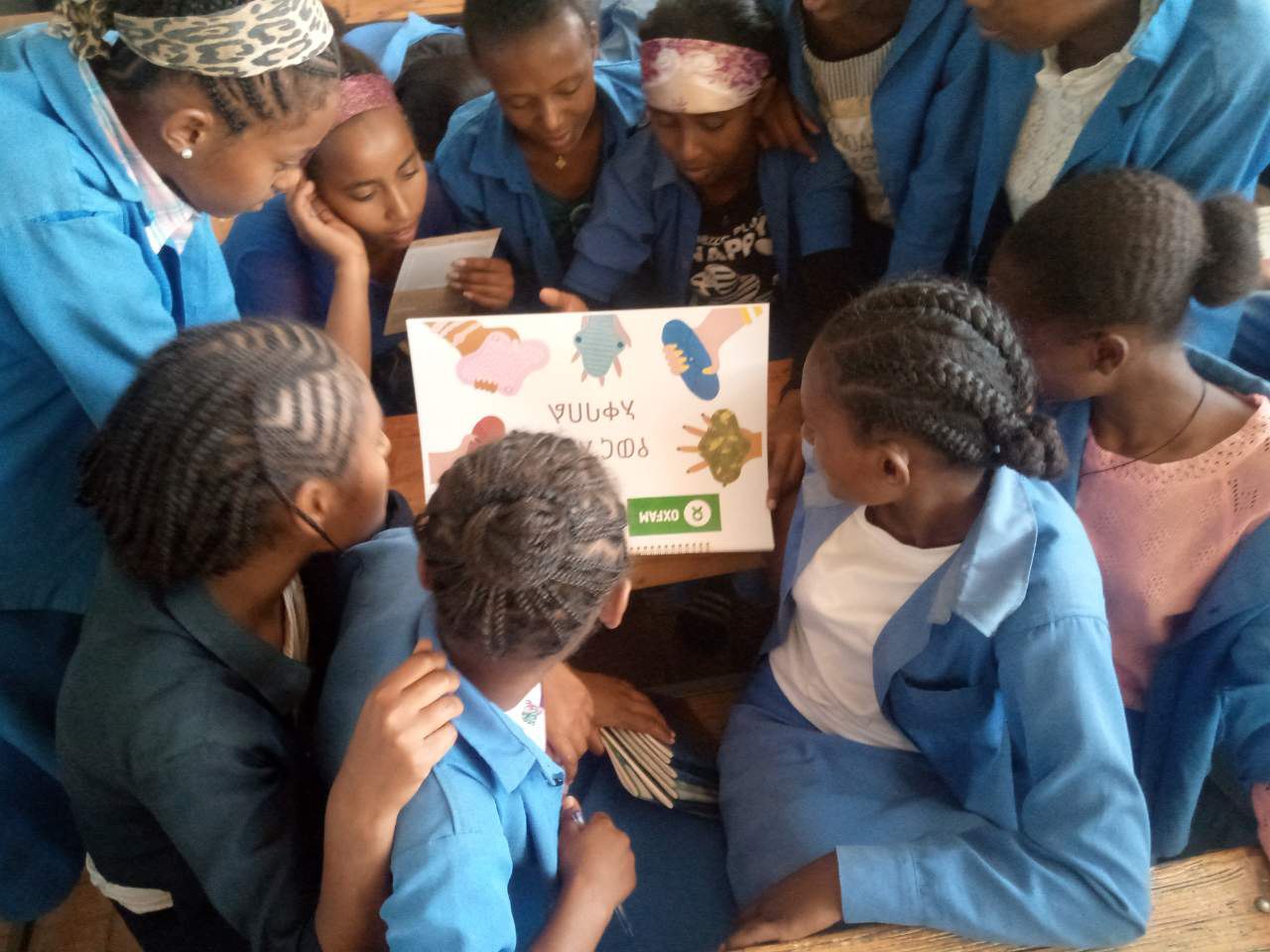In rural areas, access to proper menstrual hygiene materials and education remains a significant challenge. Targeted sessions providing reusable period packs and training on menstrual health have a significant impact empowring girls in rural schools.
Practical Support
The initiative, funded by Q3 Strategy, reached girls aged 13-16 at an elementary school in Oromia, ensuring that 50 students received reusable sanitary pads that will last them for at least two years. We partnered with Mela for Her, a local producer of reusable sanitary towels which meant that the project provided girls with much needed materials and also supported local enterprise and employment.
Education and Awareness
Recent evaluations have shown that providing sanitary towels is one of the most impactful activities in our girls’ projects. Many girls in rural areas miss school due to a lack of access to proper menstrual products and education, leading to health issues, low self-esteem, and absenteeism.
The project included a half-day training session, where menstruation was discussed in both its biological and social contexts. The session aimed to dispel myths, break taboos, and educate the girls on best practices to maintain health and dignity during their periods.
The feedback from the students was overwhelmingly positive, with 88% of them reporting that they learned something new during the session.

Prior to the session, 34% of girls missed out on school or other activities due to a lack of adequate materials for managing their periods.
92% of girls left the session feeling they had enough to be healthy and happy during their period and 88% of girls felt they learnt something new.
What was the impact?
- Empowerment through knowledge: 50 girls and 3 staff members were empowered with knowledge about menstrual health.
- Increased attendance: Prior to the session, 34% of students missed school due to inadequate menstrual hygiene materials. With the new supplies and education, these girls are now better equipped to manage their periods without missing out on school.
- Sustainability and local support: The project’s partnership with Mela for Her ensured that the sanitary towels were locally sourced and sustainable, fostering long-term impact and supporting the local economy.
- Inclusion: The initiative also prioritised inclusivity, ensuring girls with disabilities participate in the session and have access to the reusable period packs.
How did the students respond and what can we do in the future?
Both the students and staff found the training session highly beneficial. The school staff noted that this was the first time they had encountered reusable pads, and they recognised the significant impact these would have on the girls’ school attendance and overall confidence. The students, on the other hand, appreciated the practicality of the training, especially the period tracking calendar and hands-on practice with the materials.
Looking forward, both staff and students have expressed a desire for further training on more topics related to menstrual health. They also plan to incorporate what they’ve learned into their existing Girls Clubs, further reinforcing the positive changes initiated by the project.
This initiative not only provided immediate solutions to the challenges faced by these rural girls but also laid the groundwork for sustained improvement in menstrual health education.

It costs £180 to provide reusable pads and training to 10 girls. Could you help us empower the next group of students?